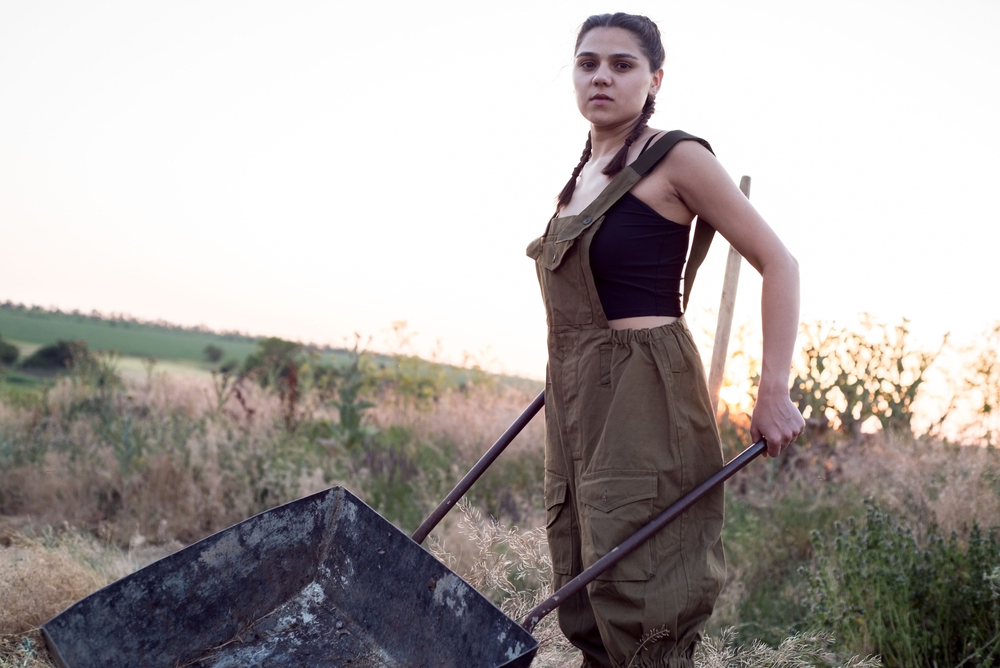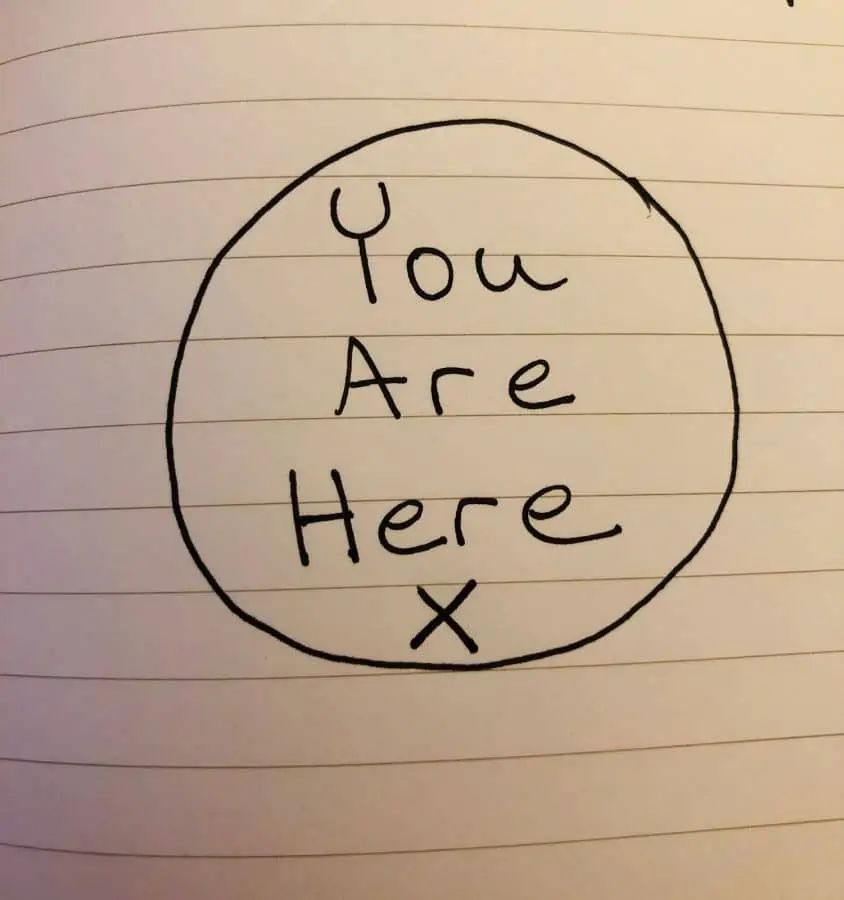Resources for the queer people in permaculture

By Laura Bee
My focus in this article will be on the inclusion of the LGBTQ+ community in permaculture. I will provide some resources, and will offer my thoughts on how inclusion of the LGBTQ+ community can improve in permaculture. The resource list is not exhaustive, so please feel free to contact me if you have something to add.
It is undeniable that mainstream permaculture is dominated by white cisgendered straight men. Men teaching permaculture is not a problem in itself, but it becomes a problem when this is all people see. It deters involvement and it sends out a clear message — a message that is reiterated in most areas of life — that to be successful you must be male, white, able-bodied, cis and straight. Which is great for all the men who tick these boxes (or is it?), but not for anyone else, and certainly not for permaculture.
It is my belief that permaculture will be vastly enriched if we make a collective effort to invite, include, listen to and understand people who are excluded, unheard and undervalued in society.
Within any learning and growing space it is important for everyone to feel safe, accepted and included. Unmet needs and social exclusion can lead to trauma, isolation and a myriad of mental health difficulties. If someone is in a minority group where their identity/identities are routinely ignored, queried, ridiculed and undermined, the impact is magnified, as it reinforces their marginalisation. It is important to recognise and reflect on this within the permaculture community, especially if we are to stand by principles such as “use and value diversity”, “use edges and value the marginal” and the overriding ethos of people care.
This does not mean creating a tick box culture, where a person from each race, gender and sexuality must be present on your permaculture prospectus. Rather, it requires self-awareness and a shift in culture, where permaculture is made radically inclusive and accessible to people from all walks of life. It means really listening to people you have not heard from, and taking their insights seriously. It means demonstrating, explicitly, that people are welcome. It means including people in permaculture who live with an invisible illness, and considering those who are not able-bodied.
What can permies do to help?
- Consider the language we use, for example, by not assuming gender pronouns or talking exclusively in heteronormative terms. It can be isolating when a permaculture teacher talks about relationships solely as a his/her dynamic. Queer people experience this a lot in mainstream culture — it would be great if we didn’t have to in permaculture spaces. Reviewing language demonstrates respect and solidarity. Inclusive and sensitive vocabulary may seem insignificant, but it can make a big difference to how people feel. It also demonstrates a middle finger to mainstream society, which is much needed in the wake of a racist Brexit, and the US being ‘run’ by a prejudiced, minority-hating umpa lumpa.
- Do you behave differently towards a person when you find out they are queer or trans? In my own experience, men’s (and occasionally women’s) attitudes and behaviour towards me unmistakably change when they discover I am queer. Whilst it makes it easier for me to filter them out of my life, it still bothers me and makes me uncomfortable. My queerness comes to define me when assumptions are made, and I draw myself in and go into self-protection mode, a place where beauty and authenticity is thwarted.
- Demonstrate explicit solidarity. This is a chance for people to be creative in their inclusivity. Permaculture projects seeking help, wwoof hosts, PDC advertisements and so on, could display an explicit sign of solidarity and inclusivity. An image, and a couple of sentences affirming people of colour, the LGBTQ+ community, immigrants and asylum seekers, people with disabilities, and so on. For us queer folk it could be as simple as a small rainbow flag or the word “Solidarity”, which could cover more than one group. However, this action should not be a token.
- Provide a database documenting unsafe permaculture projects, i.e. places where people did not feel safe, included or comfortable.
- Solidarity pricing. As I was looking for resources, I came across a super cool concept: solidarity pricing. The resilience hub offers a subsidised PDC for people of colour, First Nations People and people who identify as LGBTQI, “In recognition of historical injustices and inequalities that have resulted in differences in wealth accumulation and access to gainful opportunities over several generations”. How cool is that? If you can afford to offer solidarity pricing or a sliding scale, please do. It demonstrates that you want your teaching to be accessible and inclusive, creates opportunities, and opens permaculture to a more diverse range of people. It acknowledges the opportunities and privileges that have been afforded to people, at the expense of silencing others. The recognition — and active shift — of power and advantage based solely on one’s identity can begin to repair the balance, further offering space for unheard narratives to be told.
- Be specific about welcoming queer people, like the South Downs Eco Co-operative based just outside of Brighton in the UK. In their advertisement for a new resident they state “We welcome feminist, queer, green and politically progressive people and applicants from a variety of cultural backgrounds”. Whilst it may not seem like a big deal to mention this, it acts as a big welcome sign to people who often feel excluded or judged in other areas of life. I would be more likely to invest in a PDC, or wwoof somewhere, if it was explicit that they are open and inclusive of queer people.
- Work with LGBTQ+ people. Recognise queer permaculturists by inviting them to work with you, teach on your PDC, or to run a workshop. I’m not saying people should invite individuals just becausethey are queer, but if their teaching is great, and perhaps offers a different perspective on things, or an expertise you lack, then you should relish the opportunity to work with them. Listen deeply, and learn from each other. If you’re running a course with 20 or 30 teachers, and offering women 5 teaching positions, or everyone teaching is male, cis, white and straight, for example, you are undervaluing and disrespecting others in permaculture, and demonstrating little self-awareness and understanding of entrenched systems of oppression.
- Educate yourselves and become an ally. I would recommend reading Best Practices to Support Women in Permaculture (Karryn Olson-Ramanujan). Karryn offers an insightful and extensively informed set of practices for anyone who wants to “leverage their personal development”, touching on a couple of the issues raised in this article. I would also highly recommend the article Permaculture, Queerness & Feminism, where Nicole Vosper and Annie-Rose London offer some fantastic insights and advice for queers and queer allies. They explore juicy topics such as healing communities, queerness and liberation.
Here is a list of permaculture resources specifically targeted towards the LGBTQ+ community. Again, please add to this list, and I will update it.
Facebook groups and pages
Most of these groups are closed and you have to request to join, but do double check in case you are worried about safety and anonymity. I noticed that some of the member lists are public (before joining the groups).
LGBTQ Homestead, Permaculture & Survival A group “for individuals who are interested in homesteading, primitivism, living off grid, survivalism, wwoofing (volunteering) and other related topics who also identify as LGBTQ or a variation of those persuasions.”
Queer Farmer Network “A queer and trans farmer network based in Victoria, with tendrils into other parts of Australia. It’s a space for queer and trans folks to network and meet others who are interested in land-based physical skills and connection to land.”
Groups that are supportive of trans women. A list of groups that are inclusive of trans women, posted by Gathering the rainbow people and burning the man for freedom
Queer Sprout Providing “education and practice in sustainable living using the principles of permaculture while creating a community environment that promotes healthy expression of sexuality and gender.”
Forums
Gay, the old frontier. We never left the country An inclusive community forum on permies.com
Informative articles
Permaculture or Spermaculture? by Trina Moyles(author of Women Who Dig, which you can pre-order here).
Best Practices to Support Women in Permaculture by Karryn Olson-Ramanujan.
As mentioned above, Permaculture, Queerness & Feminism.
These Lesbian Farmers Aren’t Here To Take Over America. They Want To Grow It — by Joseph Erbentraut. A heart-warming article about lesbian farmers, responding to a Conservative talk show host, who is worrying his little head about lesbians taking over rural America. Personally, I would be quite happy with a lesbian takeover, but I do have a gay agenda. In the article there is mention of a permaculture fruit farm — Fruit Loop Acres.
Please comment below or get in touch if you would like to recommend any additional resources.
Thanks for listening.




